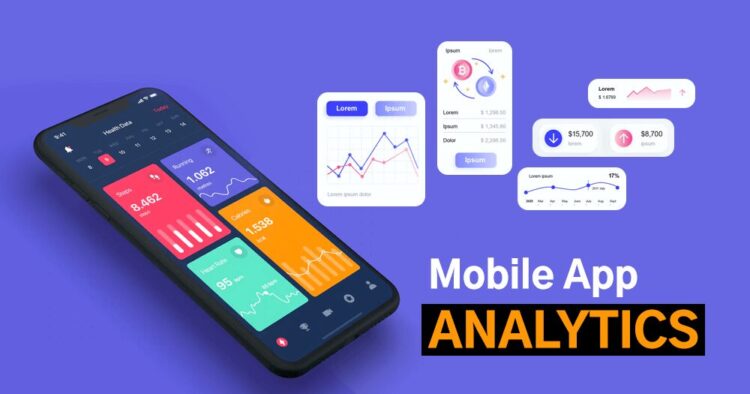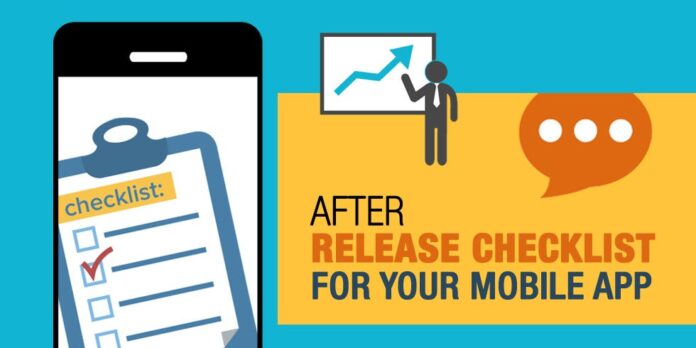Congratulations! You’ve successfully launched your mobile app, a significant achievement that required dedication, hard work, and a dash of innovation. However, the journey doesn’t end with the release; it’s just the beginning.
To ensure your mobile app continues to thrive and deliver value to users, you must consider several crucial aspects post-launch.
But before we delve into the things you need to consider after releasing a mobile app, you may wonder, why do I need to launch an app in the first place?
Why should your start-up business launch a mobile app?

There are a few reasons your start-up business should launch an app. Firstly, mobile apps provide a direct channel to reach a global audience. With billions of smartphone users worldwide, having an app allows you to tap into a massive market that might not be easily accessible through other means. Your app can be available to potential customers 24/7, enabling you to connect with them anytime, anywhere.
Secondly, a mobile app enhances customer engagement. Apps offer a more personalized and interactive way to engage with your customers. You can send push notifications, offer exclusive deals, and provide personalized recommendations based on user preferences. These features can significantly boost customer retention and loyalty.
Finally, an app can improve brand visibility and recognition. Having your app on users’ devices constantly reminds them of your brand. The app icon alone can become a recognizable symbol, fostering brand loyalty. When customers see your app on their home screens, it reinforces your brand image and encourages them to engage with your business regularly.
Now, let’s explore what you should consider once your mobile app hits the marketplace.
User Feedback and Reviews
After releasing your app, users will provide valuable feedback through app store reviews, social media, and other channels. Monitor these reviews regularly, respond to user queries, and take constructive criticism into account for future updates. Users appreciate businesses that actively engage with them. Regular updates and user feedback adherence can help apps evolve and meet changing user expectations, ensuring long-term success.
App Performance and Bug Fixes
No app is perfect from the start. Post-launch, you’ll likely discover bugs or performance issues that were not evident during testing. Prioritize bug fixes and improvements to ensure a smooth user experience. Regular updates demonstrate your commitment to quality. Mobile devices have limited resources, such as battery life and memory. Well-optimized apps efficiently manage these resources to ensure they don’t drain the device’s battery or cause slowdowns. Overly resource-hungry apps can lead to negative user experiences.
Analytics and User Data

Utilize analytics tools to track user behavior within your app. Analyzing data can help you understand how users interact with your app, which features are popular, and where they may encounter difficulties. Use this information to make informed decisions about updates and enhancements. Apps provide valuable data about your customers’ behavior and preferences. You can use analytics tools to gather insights into user interactions, track user journeys, and identify areas for improvement. This data-driven approach enables you to make informed decisions and refine your marketing strategies.
Marketing and User Acquisition
Continuing to market your app is essential for growth. Explore various user acquisition strategies, such as social media advertising, content marketing, and partnerships. A well-executed marketing plan can attract new users and retain existing ones. Your app can serve as a powerful marketing tool. You can use it to promote new products or services, run promotional campaigns, and gather user feedback. Integrating social sharing features can also help your customers spread the word about your business, further expanding your reach.
User Engagement and Retention
Keep users engaged with your app by regularly providing fresh content, updates, or new features. Implement strategies like push notifications, personalized offers, and loyalty programs to encourage user retention and ongoing engagement. An app that seamlessly integrates with the user’s device and other apps can provide a more cohesive experience. Features like sharing content to social media, using the device’s camera or GPS, and synchronizing data across multiple devices contribute to this attribute.
Security and Data Privacy

Security should be a top priority post-launch. Stay vigilant against emerging threats and vulnerabilities. Regularly update security features and communicate your commitment to data privacy and user security to build trust.
Monetization Strategies
If your app includes monetization features, analyze their performance. Are in-app purchases generating revenue? Are advertisements effectively monetizing your user base? Consider refining your monetization strategy based on user behavior and preferences.
Customer Support and Assistance
Maintain robust customer support channels. Provide users with straightforward ways to seek help or report issues within the app. Responsive and helpful customer support can improve user satisfaction and retention. Apps allow you to offer superior customer service by providing features like chat support, FAQs, and troubleshooting guides. Customers can easily reach out for assistance, making their issues more likely to be resolved promptly. Happy customers are more likely to become loyal customers.
Adapt to Technological Changes

The mobile app landscape evolves rapidly. Keep an eye on emerging technologies, operating system updates, and industry trends. Ensure your app remains compatible with the latest devices and operating systems. In many industries, having a mobile app is no longer a luxury but a necessity. Your competitors may already have apps in place, and not having one could put your business at a disadvantage. To stay competitive, embracing this technology and meeting your customers where they are is essential – on their mobile devices.
Consider Custom Software Solutions
If your app requires specialized features or integrations, consider custom software solutions from experts in the field. Custom software solutions experts can help you adapt and expand your app’s capabilities to meet evolving user needs.
Releasing a mobile app is just the first step in a continuous journey of improvement and growth. Pay attention to user feedback, app performance, and data analytics to refine your app and enhance the user experience. Engage in marketing efforts, prioritize user engagement and retention, and remain committed to security and data privacy. Staying proactive and adaptable in a dynamic app landscape is critical to long-term success.







